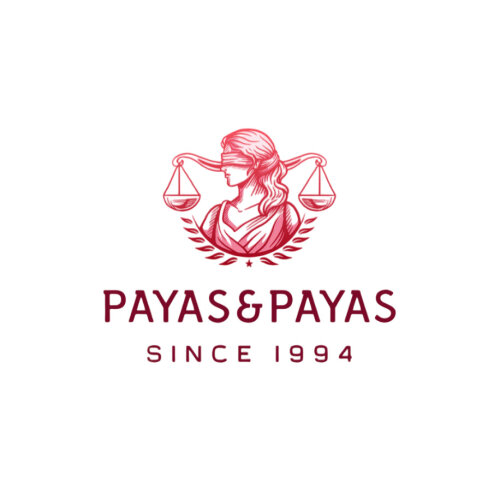Best Commercial Real Estate Lawyers in Turkey
Share your needs with us, get contacted by law firms.
Free. Takes 2 min.
Free Guide to Hiring a Real Estate Lawyer
Or refine your search by selecting a city:
List of the best lawyers in Turkey
Legal guides written by Tekin Law Firm:
- Arbitration in Turkey
Turkey Commercial Real Estate Legal Questions answered by Lawyers
Browse our 1 legal question about Commercial Real Estate in Turkey and read the lawyer answers, or ask your own questions for free.
- tenancy rental increase
- my villa rent has been increased from 2000tl in 2020 to 2500tl in 2021 then 5000tl in2022, now a proposed increase to 10000tl this year, is there a legal maximum % increase that can be demanded?
-
Lawyer answer by BAYAR LAW FIRM
For this year legal increase %25.you can increase your rent and pay with that price
Read full answer
About Commercial Real Estate Law in Turkey
Commercial Real Estate Law in Turkey governs the buying, selling, leasing, and management of commercial properties. These properties can include office spaces, shopping centers, industrial properties, and other commercial buildings. Turkey's strategic location, bridging Europe and Asia, along with its robust economic growth, has made it a lucrative destination for commercial real estate investment. The legal framework is designed to protect both local and foreign investors while promoting transparency and efficiency in real estate transactions.
Why You May Need a Lawyer
There are several scenarios where legal assistance might be crucial in commercial real estate transactions in Turkey:
- Due Diligence: A lawyer can conduct thorough due diligence to ensure the property is free of legal encumbrances.
- Contract Negotiation: Safeguarding interests by drafting and negotiating lease or purchase agreements.
- Zoning and Land Use: Advising on zoning laws and regulations to ensure the intended use of the property is permitted.
- Dispute Resolution: Representing your interests in disputes related to property ownership, leasing, or breach of contract.
- Compliance and Permits: Ensuring compliance with local laws and assisting with the acquisition of necessary permits and licenses.
Local Laws Overview
The legal landscape of Commercial Real Estate in Turkey is governed by several key laws and regulations:
- Turkish Civil Code: Provides the foundation for property rights, including regulations on sales and leases.
- Zoning and Planning Laws: Local municipal regulations can affect the development and use of commercial land.
- Tender Law: Governs the acquisition of properties sold by the government.
- VAT and Tax Regulations: Tax liabilities for commercial settings, especially concerning property transactions.
- Foreigner Property Acquisition Rules: Special provisions allowing foreign entities to acquire property, subject to restrictions in certain areas.
Frequently Asked Questions
1. Can foreigners buy commercial property in Turkey?
Yes, foreigners can buy commercial property, although there are some restrictions near military zones. Legal consultation is recommended to navigate these regulations.
2. What taxes apply to commercial real estate transactions?
Transactions are subject to a Value Added Tax (VAT), stamp duty, and sometimes income tax, depending on the nature and frequency of transactions.
3. What is the process for leasing commercial property?
The process involves signing a lease agreement, which outlines terms such as rent, duration, and renewal clauses. Legal advice is crucial in drafting this document.
4. How are property rights registered?
Property rights are registered with the Land Registry and Cadastre Directorate. This ensures the legal recognition of ownership and any encumbrances on the property.
5. What are the common types of commercial leases?
Commercial leases typically include fully serviced, net leases, and triple net leases, each defining responsibilities for costs like maintenance, taxes, and insurance.
6. What are zoning laws, and how do they affect property use?
Zoning laws determine how a property can be used based on its location. It's crucial to check whether your intended use complies with local regulations.
7. How can disputes in commercial real estate be resolved?
Disputes can be resolved through negotiation, arbitration, or litigation, with arbitration being preferred for its efficiency and confidentiality.
8. Are there incentives for foreign investors?
The Turkish government offers various incentives, such as tax reductions and exemptions for certain types of investments, especially in free zones.
9. What is the best way to finance a commercial property purchase?
Financing can be secured through Turkish banks, international financing institutions, or alternative financing methods like real estate investment trusts (REITs).
10. Is a property management company necessary?
Depending on the size and nature of the property, a management company can be essential for maintaining the property, collecting rent, and handling tenant issues.
Additional Resources
- Ministry of Environment and Urban Planning
- General Directorate of Land Registry and Cadastre
- Turkish Real Estate Investment Companies Association (GYODER)
- Investment Office of the Presidency of Turkey
- Local Chambers of Commerce and Industry
Next Steps
If you need legal assistance in the commercial real estate field in Turkey, here are some steps you could follow:
- Research and List Your Requirements: Define your needs and objectives regarding commercial real estate.
- Consult with Experts: Reach out to local law firms specializing in commercial real estate for an initial consultation.
- Gather Necessary Documents: Prepare all requisite documents and information related to the property or transaction in question.
- Understand the Legal Fees: Clarify the fee structure with your lawyer to avoid unexpected costs.
- Follow Up: Regularly consult with your lawyer to stay informed about the progress of your matter.
Lawzana helps you find the best lawyers and law firms in Turkey through a curated and pre-screened list of qualified legal professionals. Our platform offers rankings and detailed profiles of attorneys and law firms, allowing you to compare based on practice areas, including Commercial Real Estate, experience, and client feedback.
Each profile includes a description of the firm's areas of practice, client reviews, team members and partners, year of establishment, spoken languages, office locations, contact information, social media presence, and any published articles or resources. Most firms on our platform speak English and are experienced in both local and international legal matters.
Get a quote from top-rated law firms in Turkey — quickly, securely, and without unnecessary hassle.
Disclaimer:
The information provided on this page is for general informational purposes only and does not constitute legal advice. While we strive to ensure the accuracy and relevance of the content, legal information may change over time, and interpretations of the law can vary. You should always consult with a qualified legal professional for advice specific to your situation.
We disclaim all liability for actions taken or not taken based on the content of this page. If you believe any information is incorrect or outdated, please contact us, and we will review and update it where appropriate.
Browse commercial real estate law firms by city in Turkey
Refine your search by selecting a city.

















